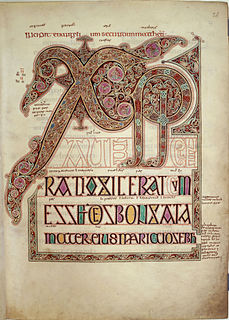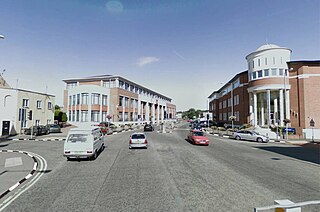Sunna was a Saxon chief whose people were widespread in eastern Berkshire, southern England. A number of English place names are derived from this name including Sonning (historically spelled "Sunning"), Sonning Eye, Sunbury, Sunningdale, Sunninghill and Sunningwell, many close to the River Thames. [1]

The Anglo-Saxons were a cultural group who inhabited Great Britain from the 5th century, and the direct ancestors of the majority of the modern British people. They comprise people from Germanic tribes who migrated to the island from continental Europe, their descendants, and indigenous British groups who adopted many aspects of Anglo-Saxon culture and language; the cultural foundations laid by the Anglo-Saxons are the foundation of the modern English legal system and of many aspects of English society; the modern English language owes over half its words – including the most common words of everyday speech – to the language of the Anglo-Saxons. Historically, the Anglo-Saxon period denotes the period in Britain between about 450 and 1066, after their initial settlement and up until the Norman conquest. The early Anglo-Saxon period includes the creation of an English nation, with many of the aspects that survive today, including regional government of shires and hundreds. During this period, Christianity was established and there was a flowering of literature and language. Charters and law were also established. The term Anglo-Saxon is popularly used for the language that was spoken and written by the Anglo-Saxons in England and eastern Scotland between at least the mid-5th century and the mid-12th century. In scholarly use, it is more commonly called Old English.

Berkshire is one of the home counties in England. It was recognised by the Queen as the Royal County of Berkshire in 1957 because of the presence of Windsor Castle, and letters patent were issued in 1974. Berkshire is a county of historic origin, a ceremonial county and a non-metropolitan county without a county council. The county town is Reading.

England is a country that is part of the United Kingdom. It shares land borders with Wales to the west and Scotland to the north-northwest. The Irish Sea lies west of England and the Celtic Sea lies to the southwest. England is separated from continental Europe by the North Sea to the east and the English Channel to the south. The country covers five-eighths of the island of Great Britain, which lies in the North Atlantic, and includes over 100 smaller islands, such as the Isles of Scilly and the Isle of Wight.
One historian notes that "Sunbury may be named after Sunna, the eponymous founder of the provincia quae appellatur Sunninges, whose territory lay in Berkshire west of the lands granted to Chertsey in the mid-670s". [2] A historian of Wessex has commented "The Sunna of Sonning and related names... was clearly a local potentate of no small importance". [3] Searle's Onomasticon finds that Sunna was a rare personal name. [4]

Chertsey is a town in the Runnymede borough of Surrey, England on the right bank of the River Thames where it is met by a corollary, the Abbey River and a tributary, the River Bourne or Chertsey Bourne. It is within a narrow projection of the Greater London Urban Area, aside from the Thames bordered by Thorpe Park, junction 11 of the M25 London orbital motorway, the town of Addlestone and south-western semi-rural villages that were formerly within Chertsey. Chertsey is centred 29 kilometres (18 mi) southwest of central London, has a branch line railway station and less than 1 mile (1.6 km) north of its developed centre is the M3 (motorway).

Wessex was an Anglo-Saxon kingdom in the south of Great Britain, from 519 until England was unified by Æthelstan in the early 10th century.
However, a 1937 theory held that "The meaning of sunna is likely to be wet or marshy land...[as] in Sonning, h[undre]d. and par[ish]...near Reading, and in Sunninghill in south-east Berkshire". [5]

Reading is a large minster town in Berkshire, England, of which it is now the county town. It is in the Thames Valley at the confluence of the River Thames and River Kennet, and on both the Great Western Main Line railway and the M4 motorway. Reading is 70 miles (110 km) east of Bristol, 24 miles (39 km) south of Oxford, 40 miles (64 km) west of London, 14 miles (23 km) north of Basingstoke, 12 miles (19 km) south-west of Maidenhead and 15 miles (24 km) east of Newbury as the crow flies.








